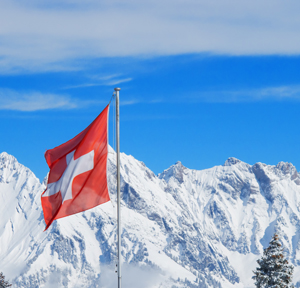Strategy
EFG Says Marriage To Fellow Swiss Private Bank Starts Happily

EFG International is upbeat about progress regarding its agreement to acquire fellow Swiss private bank BSI.
EFG
International, which in February agreed to buy fellow
Swiss-headquartered private bank BSI from Brazilian parent BTG
Pactual, today said preparations to combine the businesses are
off to a "good start".
Updating investors on the acquisition, EFG outlined moves to
migrate BSI to its IT core banking platform by the end of 2017
and gave more detail on the targeted fully phased-in pre-tax cost
synergies it intends to achieve of around SFr185 million ($191.7
million) by 2019.
“Preparations for the business combination of EFG and BSI to
create a leading Swiss private bank have gotten off to a good
start. With their strong focus on private banking, the two banks
have a lot in common, and by joining forces, we will be able to
make an attractive value proposition to clients, employees and
shareholders. With a view to the future business, we have decided
that the combined bank will operate on EFG’s core banking
platform from 2018 onwards due to the lower costs that will
ensue," said Joachim Straehle, chief executive of of EFG
International.
As announced on 22 February, the agreement by EFG to buy BSI
creates a combined bank with assets under management of SFr170
billion and 860 relationship managers. There had been speculation
that Brazil-based BTG Pactual was to sell BSI barely a few weeks
after having bought it. BTG Pactual has been engulfed in a
corruption scandal and has been looking to raise capital.
EFG International will pay in cash and EFG shares for the deal,
it said in February. (To see a story on details of the financing
of the transaction, see here.)
Subject to shareholder and regulatory approvals, completion of
the transaction is expected in the fourth quarter of this
year.
EFG International logged an underlying recurring net profit of
SFr91.1 million in 2015, a fall of 30 per cent on a year earlier,
and an IFRS net profit of SFr57.1 million, down by 7 per cent on
the prior year. The cost-income ratio was 86.1 per cent, up from
79.8 per cent; revenue-generating assets under management were
SFr83.3 billion, down from SFr84.2 billion. There were net
inflows of SFr2.4 billion, down from SFr4.4 billion.